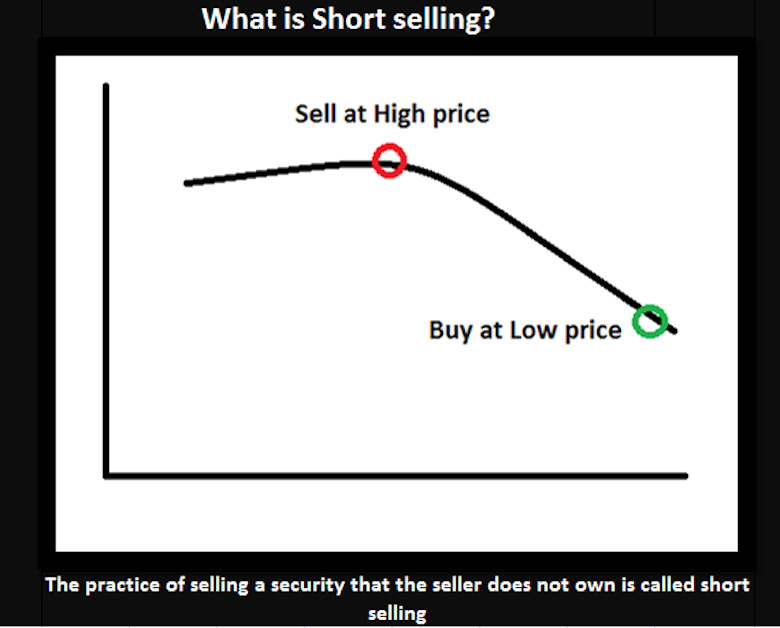Short Selling : The practice of selling a security that the seller does not own is called short selling. Short selling is trading strategy in which the sellers undertake the risk that the price of the security involved will come down and they will be able make profit by buying it at such lower price. Thus, Short sale is profitable only when the closing price is lower than the entry price. When the price goes higher than the price at which one has short sold, then there would be a loss.
Short selling India:
In India retail investors as well as institutional investors such as mutual funds are allowed to indulge in short selling. In the early years around in 2001, SEBI banned the short selling. Later on, retail investors were allowed to short sell which was extended to institutional investors also by 2008.

Types of short selling:
Covered short sale:
Covered short sales are those in which the seller arranges for the delivery of shares he has sold by borrowing them. Borrowing the security from the original owner is the prerequisite before placing the short sale order.
Naked/Uncovered short sale:
Naked short sales are those in which the seller does not intend to provide for the delivery of shares he has sold. This has been banned by all the international securities market regulators declaring it to be illegal.
Parties involved in short selling:
Short selling involves three parties:
- original owner
- the short seller
- and the new buyer
The person who wants to short sell (short seller) will borrow the shares from the original owner, and immediately sells them on the open market to any willing buyer. To close the short position, the short seller shall then go out into the stock market and buy the same amount of shares as he sold so that the broker can return them to the original owner. To sell short any security one should have a margin account with the stock broker. And the margin account allows you borrow from your brokerage company using the value of your portfolio as collateral or the margin money lying in your account
Why is it so popular?
Short selling is considered an essential feature of the securities market not just as a portfolio protection strategy but also a tool to correct the overvalued stocks. It is one of the best practices to avoid the price manipulations by artificial hypes.
Carefully executed short selling protects portfolios against erosion due to a broad market decline. Short sellers make profits when stock prices fall. One can diversify his portfolio by adding some short positions. The portfolio will then have positions that make money in both the cases i.e. when prices rise and when they fall. This reduces the volatility in the portfolio’s returns and helps protect the value of the portfolio when prices are coming down.
On a negative side
Short selling requires a lot of market research & deep study of the securities. At times, they might result in huge losses just as happened in the case of an investor in the US when placed a $37,00 short position of a pharma company the shares of which had shot up about 800% after the CEO gained majority stake in the company. So, being very much calculative while undertaking the short sale is the prerequisite for trade.
Following is the link to access the SEBI’s discussion paper on short selling and securities lending
Must Read-
